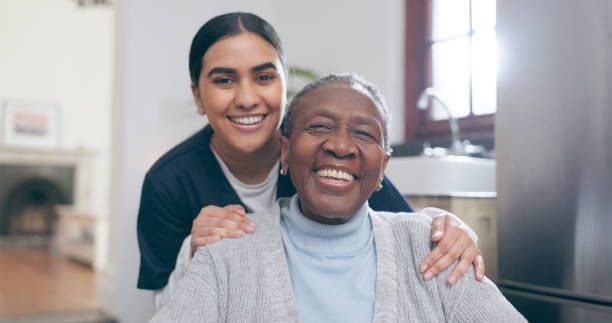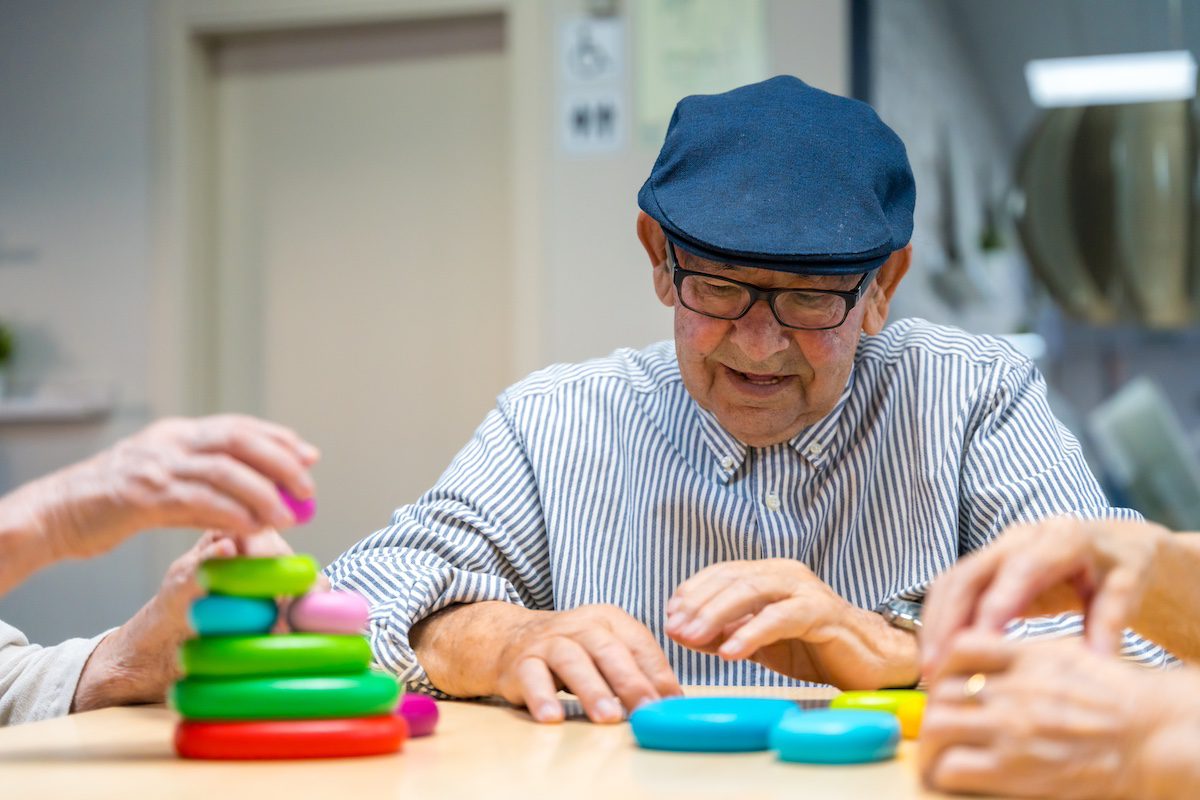What Makes a Good Senior Caregiver

Caring for seniors is a noble and demanding profession that requires a unique blend of skills, qualities, and dedication. A good senior caregiver is someone who not only provides the necessary physical care but also fosters a compassionate and supportive environment that enhances the quality of life for older adults. Here are key attributes and skills that define a good senior caregiver:
Compassion and Empathy
At the heart of caregiving lies compassion and empathy. These qualities enable caregivers to understand and share the feelings of the seniors they care for, building a trusting relationship. Compassionate caregivers are attentive to their clients’ emotional needs, offering comfort and reassurance. Empathy allows them to put themselves in the seniors’ shoes, understanding their struggles and joys, which is crucial in providing personalized care.
Patience and Flexibility
Seniors often face a range of physical and cognitive challenges, which can lead to frustration and confusion. A good caregiver must exhibit immense patience, allowing them to calmly handle difficult situations without losing their temper. Flexibility is equally important, as caregivers must adapt to changing needs and schedules. This ability to adjust ensures that seniors receive consistent and responsive care tailored to their current state.
Strong Communication Skills
Effective communication is essential in caregiving. Caregivers must be able to clearly convey information to seniors, their families, and healthcare professionals. This includes not only verbal communication but also active listening. Understanding non-verbal cues is particularly important when caring for seniors with cognitive impairments. Good communication helps accurately assess needs, explain medical instructions, and provide emotional support.
Physical Strength and Stamina
The physical demands of caregiving can be significant, requiring caregivers to assist with mobility, transfers, and daily activities such as bathing and dressing. Therefore, a good caregiver needs to have adequate physical strength and stamina. Maintaining their health and fitness ensures they can meet the job’s physical demands without compromising their well-being or the senior’s safety.
Knowledge and Skills
A good senior caregiver is well-versed in the basics of elderly care, including understanding common age-related conditions such as dementia, arthritis, and cardiovascular diseases. They should be skilled in first aid and emergency response and knowledgeable about medication management and nutrition. Continuous learning and professional development are important, as they help caregivers stay updated with the latest best practices in senior care.
Reliability and Trustworthiness
Families entrust caregivers with the well-being of their loved ones, which requires a high level of reliability and trustworthiness. A good caregiver is punctual, dependable, and consistent in their duties. They respect the privacy and dignity of the seniors, maintaining confidentiality and adhering to ethical standards. Building trust with both the senior and their family is critical for a successful caregiving relationship.
Positive Attitude and Emotional Resilience
A positive attitude can significantly impact the mood and well-being of seniors. Good caregivers bring a cheerful disposition to their work, which can help uplift the spirits of those they care for. Emotional resilience is also crucial, as caregiving can be emotionally taxing. Coping with stress, grief, and difficult emotions ensures that caregivers can provide stable and supportive care over the long term.
Problem-Solving Skills
Every day in caregiving can present new challenges. Good caregivers possess strong problem-solving skills, enabling them to quickly and effectively address issues as they arise. Whether it’s a sudden health concern, a behavioral issue, or a logistical problem, thinking critically and remaining calm under pressure is invaluable.
Respect for Autonomy
A good caregiver respects seniors’ autonomy and independence, encouraging them to make their own decisions and participate in their own care as much as possible. This respect for autonomy helps maintain the dignity and self-esteem of older adults, promoting a sense of control and purpose in their lives.
Compassionate Companionship
Beyond physical care, seniors often require emotional and social support. Good caregivers provide companionship, engaging in conversations, activities, and hobbies that interest the senior. This companionship helps combat loneliness and isolation, which are common issues among the elderly.

How to Use Compassion and Respect for Seniors
Caring for seniors with compassion and respect is fundamental to providing quality care. These principles ensure that older adults are treated with the dignity they deserve and enhance their overall well-being. Here are ways to effectively incorporate compassion and respect into senior care:
Understanding and Acknowledging Individuality
Every senior has a unique background, set of experiences, and preferences. Showing compassion and respect starts with recognizing and valuing these individual differences. Engage in conversations to learn about their history, interests, and preferences. This helps in tailoring care to their needs and shows that you see them as individuals, not just patients or clients.
Active Listening
Active listening is a cornerstone of compassionate and respectful care. It involves fully concentrating, understanding, responding, and remembering what the senior is communicating. This practice shows that you value their thoughts and feelings. Make eye contact, nod in acknowledgment, and provide verbal affirmations. Avoid interrupting and give them time to express themselves, even if it takes longer than usual.
Providing Emotional Support
Seniors often face emotional challenges, such as loneliness, anxiety, and depression. Providing emotional support is a key aspect of compassionate care. Offer a comforting presence, be empathetic, and provide reassurance. Sometimes, just being there and showing that you care can significantly affect their emotional well-being.
Encouraging Independence
Respecting a senior’s autonomy means encouraging them to do as much as they can for themselves. Assist only when necessary and support their efforts to remain independent. This can involve helping them with tasks they can’t manage alone while encouraging them to take charge of those they can. This approach respects their abilities and boosts their confidence and self-esteem.
Maintaining Dignity
Respecting a senior’s dignity involves recognizing their worth and treating them accordingly. This includes respecting their privacy, particularly during personal care tasks like bathing or dressing. Always explain what you are about to do before you do it, seek their consent, and allow them to participate as much as possible. This practice affirms their sense of control and dignity.
Tailoring Communication
Effective communication is essential in showing respect and compassion. Speak clearly, but avoid speaking down to seniors or using a patronizing tone. Adjust your communication style to suit their needs, whether that means speaking louder, using simpler language, or providing written information. This ensures they understand and can participate in decisions about their care.
Being Patient and Understanding
Patience is vital in senior care. Older adults may take longer to perform tasks or may have difficulty expressing themselves. Show patience by allowing them the time they need and providing gentle encouragement. Understand that their pace may be slower and avoid rushing them, as this can lead to frustration and feelings of inadequacy.
Providing Comfort and Safety
Ensuring that seniors feel safe and comfortable is an expression of compassion. Create a secure and free-from-hazards living environment. Pay attention to their physical comfort by ensuring they have proper seating, bedding, and temperature control. Additionally, providing emotional comfort by being a stable and reassuring presence helps them feel secure.
Celebrating Their Life
Celebrate the lives and achievements of seniors. Recognize and honor their contributions, milestones, and special moments. This could be through celebrating birthdays or anniversaries or simply acknowledging their past achievements. Such recognition reinforces their sense of identity and self-worth.
Involving Them in Social Activities
Loneliness and social isolation are common issues among seniors. Show compassion by involving them in social activities that they enjoy. This could include family gatherings, community events, or simple daily interactions. Encouraging social engagement helps them feel valued and connected to others.
Conclusion
Using compassion and respect in senior care means seeing the person beyond their age and physical limitations. It involves understanding their individuality, actively listening, providing emotional support, and encouraging their independence. Maintaining their dignity, tailoring communication, being patient, ensuring comfort and safety, celebrating their life, and involving them in social activities are all crucial aspects. By incorporating these practices, caregivers can significantly enhance the quality of life for seniors, making them feel valued, respected, and loved.







